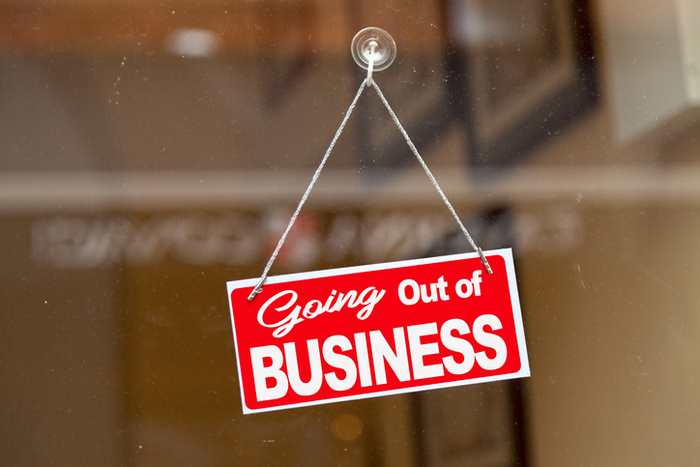When retail stores announce closures, it's common to see an increase in unofficial websites claiming to offer steep discounts.
When a retailer declares bankruptcy or announces the closure of store locations, scammers waste no time setting up fake going-out-of-business and liquidation websites.
What you'll learn:
- What are the signs of a fake “going out of business” sale?
- Which businesses are being impersonated?
- How can I avoid these fake liquidation sales?
- What can I do about returns and refunds?
BBB receives numerous reports to BBB Scam Tracker about fake closeout sales for businesses that declared bankruptcy or announced they are closing store locations (and some that haven’t!).
These businesses include:
- Bed Bath and Beyond
- JOANN
- Rite Aid
- JCPenney
What are the common signs of a fake "going out of business" sale?
- The sale is advertised to you through online ads or on social media.
- The website has blurry or distorted images and logos, and the URL doesn’t match the business’s real web address.
- The merchandise is extremely discounted, sometimes up to 90% off, with additional discounts being added when checking out.
- Your tracking number tells you the items are being shipped from overseas, even if the business is based in North America.
- You never receive your merchandise. The “retailer” may claim that the items were shipped, or they may tell you that the items could not be delivered.
- If you do receive your merchandise, the items may be of poor quality and not what you thought you ordered.
- You are unable to receive a refund, and/or you are unable to contact the retailer.
According to the BBB Code of Advertising, liquidation and going out of business sales are considered “emergency” or “distress” sales. Businesses may only advertise this kind of sale if they are actually going out of business. In addition, they have a limited time period to offer such deals. BBB’s code states, “If such sales exceed ninety (90) days, advertisers must be prepared to substantiate that the offering is indeed a valid emergency or distress sale.”
If you notice a business in your area advertising a “going out of business” or “liquidation” sale for months without ever closing, be wary. Some businesses use these terms dishonestly to draw in customers and pressure them to buy, often by implying limited access to certain merchandise or a small window of time to purchase.
How can I avoid "going out of business" sale scams?
What should I know about returns and warranties?
If you have not received products or services you have already paid for, or if the merchandise you received is not what you paid for, all may not be lost. BBB has these tips to help you toward resolution:

- Collect receipts, proof of purchase, and other documents such as warranties and manuals. These materials will help you prepare your request for a resolution.
- Check with the bank or credit card you used to make the purchase(s) at the now-closed company. You may be able to dispute the transaction(s) due to failure to receive products or services.
- Try to contact the company to complete the transaction or resolve the issue. Some closed companies will offer an email, website, or phone number to contact for more information. Check with your BBB to see if they have information about the company, or search for the company on BBB.org. If the business has a physical address, check for a notice posted with information on where to turn for help. Also, look at the company's website and social media presence for information.
- If the company has not filed for bankruptcy, the business is still obligated to fulfill your order for goods, services, or a refund. Closing a business doesn't relieve the owner of that responsibility. While it can be time-consuming and expensive, court can be an option.
- For returns: if you have a warranty for an item you bought at the store, look into whether the manufacturer or the store issued the warranty. If the manufacturer issues the warranty, it will most likely honor it. When a company goes out of business, its warranties and services often die unless other agreements have been made.
- If you have unused gift cards for a closed business, bankruptcy filings will likely determine if and how they can be used or claimed.
